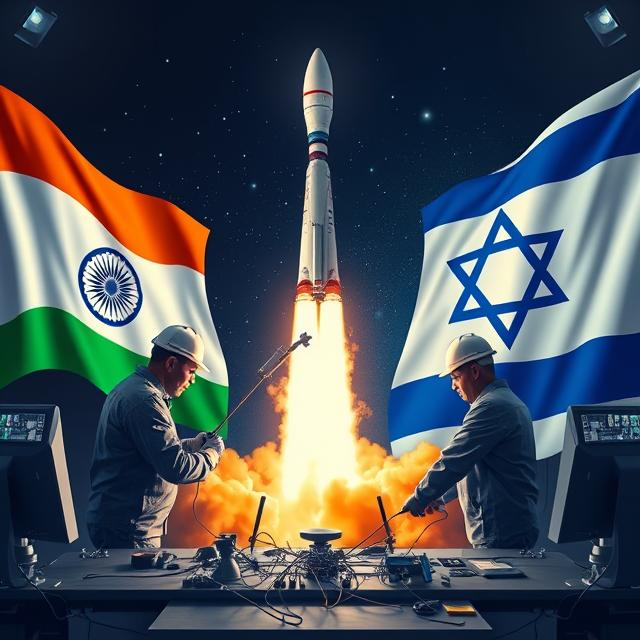India and Israel have just revealed plans to work together more on space technology. This marks a big step forward for both countries in tech progress and strategic ties. Their teamwork aims to push their space programs further and create new solutions in the space field.
Key Space Tech Wins
India and Israel have both made big strides in space exploration and satellite tech. India’s space agency ISRO, has put many satellites into orbit. These satellites help with communication, earth observation, and science research. Israel is known for its high-tech aerospace innovations. It has built advanced satellite systems that have been crucial in global space efforts.
Main Areas of Teamwork
The collaboration will focus on key areas to advance space technology, including satellite communication, Earth observation, space exploration, and satellite launch capabilities. By joining forces and sharing knowledge, both countries hope to speed up progress and make big leaps in space tech.
How Both Countries Will Gain
This team-up offers many perks for both sides. India can learn from Israel’s know-how in making small satellites and cutting-edge space communications. Israel, in turn, can take advantage of India’s cheap satellite launches and long-standing work in remote sensing, which will help put more satellites in orbit for less money.
What This Means for Strategy and Diplomacy
Beyond the technical stuff, this teamwork has an impact on strategy. It makes India and Israel closer friends leading to stronger connections in areas like defense, tech, and space exploration. Also, people think this alliance will help keep the region stable and boost the economy through joint projects in the space industry.
Future Plans and New Ideas
Looking ahead, India and Israel want to work together more by starting joint research and development projects in space tech. They’re also keen to use cutting-edge tech like AI and quantum computing in their space programs. This forward-looking approach puts their partnership in a good spot to create new chances in the global space market.
